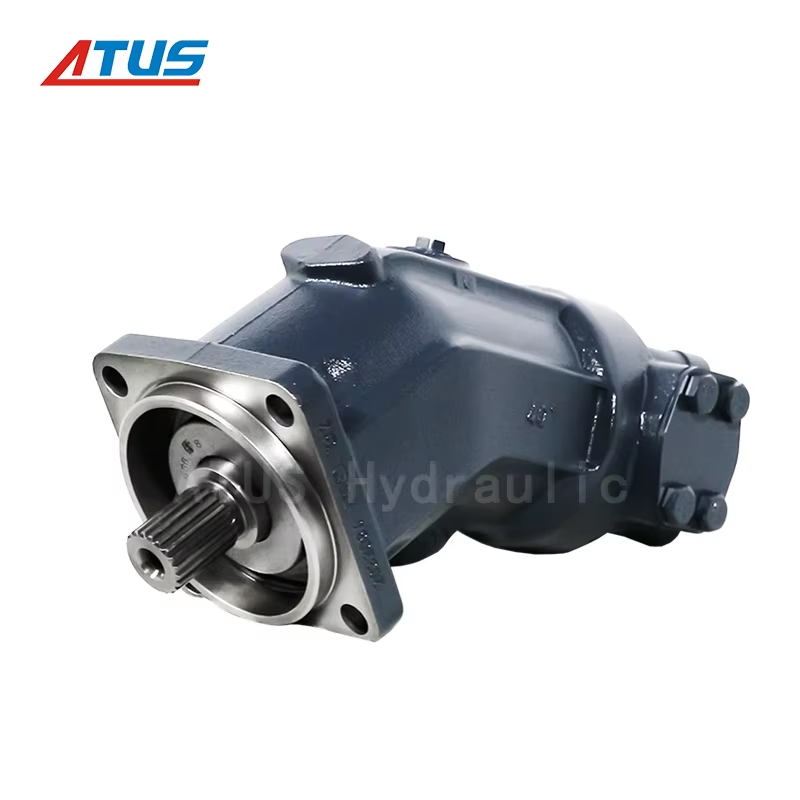Hydraulic systems are essential in many industrial applications, but they are often associated with noise problems that can affect performance, safety, and operator comfort. Excessive noise in hydraulic systems is not only a nuisance but can also signal inefficiency or underlying issues. ATUS, a leader in hydraulic technology, offers solutions to effectively reduce noise in these systems, ensuring smoother, quieter, and more reliable operation. This article explores common causes of noise in hydraulic systems and how ATUS addresses these challenges.
1. Common Causes of Noise in Hydraulic Systems
Noise in hydraulic systems can stem from a variety of sources. The most common causes include:
- Cavitation: This occurs when there is a sudden drop in pressure, causing air bubbles to form in the fluid. When these bubbles collapse, they produce a sharp noise and can damage system components.
- High-velocity fluid flow: Fast-moving hydraulic fluid can create turbulence and cause vibration, leading to noise.
- Pump issues: Wear, misalignment, or incorrect operation of hydraulic pumps often leads to an increase in noise.
- Loose components: Vibrations from improperly secured or worn parts can amplify noise levels.
Understanding these causes is crucial to identifying the right solutions for noise reduction in hydraulic systems.
2. Effective Noise Reduction Strategies
ATUS, known for its advanced hydraulic solutions, emphasizes a multifaceted approach to noise reduction:
- Optimizing Fluid Flow: ATUS designs hydraulic systems with carefully engineered flow paths and pressure control mechanisms to reduce turbulence and minimize the risk of cavitation. Proper fluid viscosity and regular maintenance can also help reduce flow-related noise.
- High-Quality Pumps and Components: Using high-quality, precision-engineered pumps and components, such as those offered by ATUS, ensures smoother operation with less vibration and noise. Well-maintained pumps operate more efficiently and are less prone to the noise associated with wear or misalignment.
- Vibration Isolation: ATUS systems often incorporate vibration-dampening materials and mounts to isolate noise-producing components. These materials absorb or deflect vibrations, reducing the transmission of noise throughout the system and surrounding environment.
- Proper System Design: A well-designed hydraulic system with appropriate pressure settings, component sizing, and installation can minimize noise. ATUS provides custom solutions tailored to the specific needs of each application, optimizing the system for quiet, efficient operation.
3. The Role of Regular Maintenance
Regular maintenance is essential for maintaining the quiet operation of hydraulic systems. ATUS recommends frequent checks for signs of wear or damage, especially in critical components such as pumps, valves, and seals. Early detection of problems like cavitation or leaks can prevent excessive noise and costly repairs. Additionally, maintaining the correct fluid levels and replacing filters as needed helps ensure the system remains free from contamination, which could contribute to noise.

Noise in hydraulic systems is a common issue that can significantly impact the performance and longevity of the equipment. By understanding the causes of noise and implementing effective strategies like fluid optimization, high-quality components, vibration isolation, and regular maintenance, businesses can significantly reduce noise levels. ATUS, with its innovative hydraulic solutions, provides the tools and expertise necessary to create quieter, more efficient systems, ensuring better performance and a more comfortable working environment.